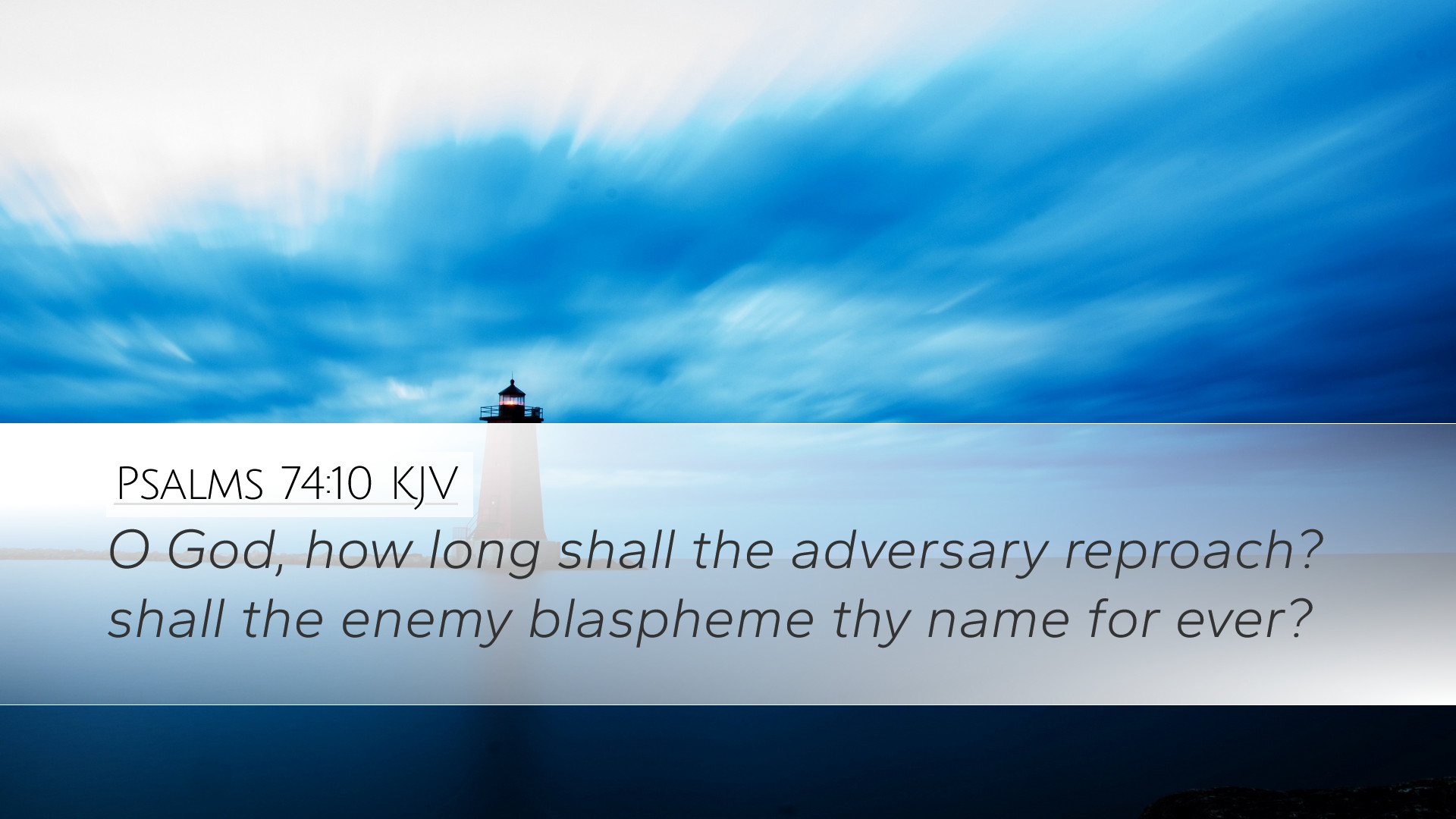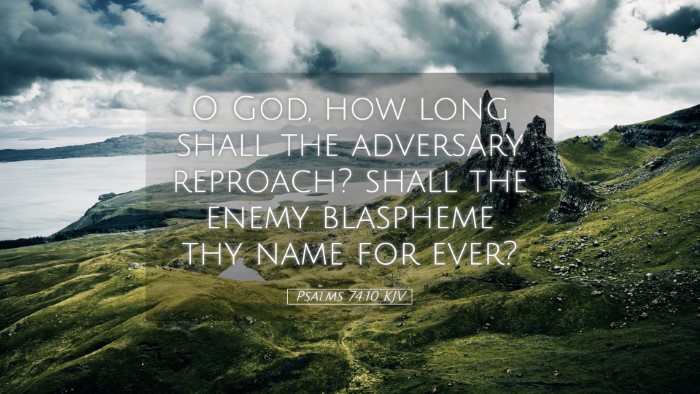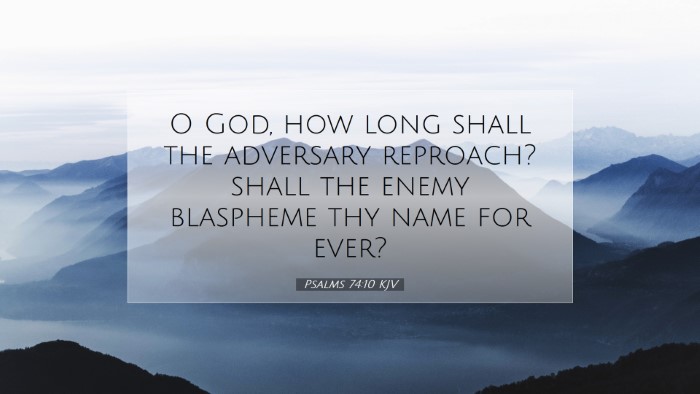Commentary on Psalms 74:10
Psalms 74:10 states, "O God, how long shall the adversary reproach? Shall the enemy blaspheme thy name for ever?"
This verse encapsulates a profound moment of lament, expressing the psalmist's urgency and desperation in the face of overwhelming enemy opposition. It speaks not only to personal anguish but also to the communal suffering of God’s people.
Context and Background
Psalms 74 is attributed to Asaph, a leader of temple worship in Israel. The historical context suggests this psalm was composed during a time of national crisis, likely during the Babylonian conquest of Jerusalem. The temple's destruction would have been a significant blow to the Israelites' collective identity and faith in God, inciting a profound sense of loss and betrayal.
Analysis of the Verse
In examining Psalms 74:10, we recognize key themes such as divine silence, the challenge of faith amidst adversity, and the desire for vindication. Each aspect can be enriched through insights provided by esteemed biblical commentators.
Divine Silence and Suffering
Matthew Henry underscores the emotional turmoil of the psalmist. He notes that the phrase "how long" signifies a prolonged period of suffering which often leads the faithful to question God’s presence. This silent duration raises concerns about the perceived apathy of God towards the suffering of His people. Henry's commentary emphasizes that despite God's seeming silence, His justice will ultimately prevail.
The Nature of the Adversary
Albert Barnes elaborates on the adversaries' role, encapsulating the severity of their actions as blasphemous and reproachful. The word “reproach” implies that the enemies are not merely oppressors; they invade the very sanctity of God’s name. Barnes argues that the enemies' triumph becomes a source of mockery against God, challenging His authority and power, which gives the psalmist a reason for deep lament.
Longing for God's Vindication
Adam Clarke infers that this verse reflects a cry for divine intervention. The psalmist is not only lamenting the current state of affairs but is earnestly questioning God’s timing in delivering justice. Clarke points out that the longing expressed here resonates with any believer undergoing persecution and serves as a reminder that God’s timing is often different than ours but is always perfect.
Theological Implications
Psalms 74:10 serves to remind congregations and scholars alike about the raw human emotion present in Scripture. It shows that questioning God is not inherently sinful but an expression of heartache and a plea for attention. This interaction is valuable in pastoral care, highlighting the importance of providing a space where people can voice their frustrations to God.
God's Name and Its Significance
The psalmist’s reference to God’s name reveals a deeper theological truth. In biblical times, a name signified character and authority. Thus, when the enemies blaspheme God’s name, they aim to undermine the very essence of who God is. This should invoke a sense of urgency in God’s people for the sanctification of His name amid hostility.
Applications for Today
-
Encouragement in Suffering: Believers can take solace from the psalmist's example, understanding that it is valid to express grief and frustration in prayer while turning to God for solace.
-
Pursuit of Justice: The cry for vindication should inspire both individuals and communities to seek justice in situations where they feel oppressed or mocked.
-
Understanding God's Timing: It is crucial for believers to trust God's timing in the face of trials. The assurance that justice will prevail can be a source of strength during adversity.
Conclusion
The plea found in Psalms 74:10 is rich with emotion and theological weight, making it relevant for all believers. Through the insights of Matthew Henry, Albert Barnes, and Adam Clarke, we are reminded of the complexity of faith under trial. The profound cry of the psalmist is not only an expression of desperation but also an affirmation of hope that God will ultimately respond to the injustices faced by His people.


